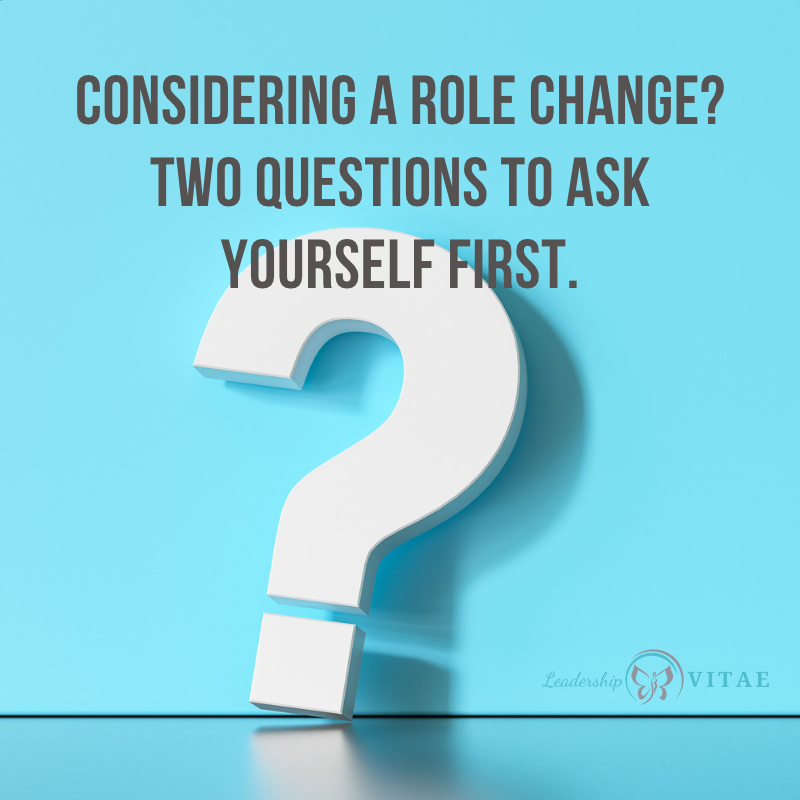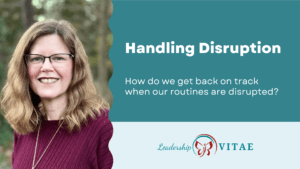
One of the best parts of my job is the opportunity to provide coaching to those who might not otherwise find it accessible. Years ago, I was fortunate enough to be provided with an executive coach through my employer. Before that, I was unfamiliar with coaching and its benefits, let alone how to engage a coach.
It changed my life, personally and professionally. When I became a coach myself and had the opportunity to give back, I was delighted to connect with employees at all levels of the organization with whatever would benefit them most.
While every person/need is different, I’ve noticed a distinct trend over the last two years. Most of those pursuing internal coaching had one area of interest. Whether they were on a path and weren’t sure if it was still valid, or had no path and wanted do develop one, the result was the same. It’s the age-old question – what is my right next step?
The approach that I’ve used for career and role evaluations is decades old. I started using it during my first job with the Marine Corps and later as a hiring manager during interviews. Now it comes up in most conversations as a coach.
How we get into our careers can vary. I’ve met many individuals that have fallen into their careers or changed them once they began working in their chosen field. What if we could be more purposeful from the outset?
To multiply or diminish
Most people want to be good at what they do. Even if it’s to maintain a job that puts food on the table, we want to be good (enough) without having to burn ourselves out along the way.
Skill and effort alone are not sufficient to achieve that goal. We can be quite skilled in something yet have to put in a level of effort that seems massive in comparison to someone else that appears to fly at the task. Sometimes it’s experience, but that does not explain away the different completely.
The difference is energy.
If Skill * Effort = Outcome, energy is the multiplier or diminisher. For example, if I’m energized by something, it amplifies my skill and requires less effort to get to a good outcome. If I’m drained by it, then it feels harder to put in the same effort – regardless of my skill level. I must redouble my efforts to get to the same outcome.
To find our path, we must look at all parts of the final equation Energy (Skill * Effort) = Outcome
Find the energizers
Answer this question: “What activities, if I could do them all day every day, would cause me to jump out of bed and run to work?”
They don’t have to all be work related. Hobbies, time with family and friends, or things we learned about in school may be the answer. During coaching sessions, I’ve heard travel, skiing, golf, cooking, and more.
Once we have the list, we can look at WHY something is on there. The traveler enjoyed the research before the trip and learning about new places. The skier was competitive with friends, while the golfer enjoyed a sense of connection with his. The cook liked the feeling of caring for others through food.
Now we’re getting somewhere. Each of these people had passions that could be ignited at work if we found opportunities that aligned to the underlying value. Whether that’s being competitive, caring for others, or something else…what’s important is the mix for that person.
Identify the drainers
Drainers can be found by asking the opposite question. “What activities, if I had to do them all day every day, it would be like sticking a hot poker in my eye?”
Again, these may be work related or not. If we’re not sure – some have said “there’s nothing I really dislike doing” – we can consider the opposite of our energizers. For example, those that like to be challenged generally dislike repetitive work. When we crave connection, head’s down independent work is often a struggle.
Recently, I met with a client that was feeling very drained at work. When she answered this question, it turned out that her job was filled with drainers. No wonder she was having a tough time.
During interviews, I’ve asked this question only to find that someone is drained by work that is core to the job I’m trying to fill. Unfortunately, we don’t always realize that the work we’re pursuing is at odds with where our energy lies. Instead, we think we just need to work harder…all the way to burnout.
Energy lights the way
If we want to curate a balanced life, where we can work hard (enough) yet avoid burning out, knowing our energizers and drainers is key.
When we consider that next job application, if most activities are energizing ones, it could be a good fit. It’s unlikely we’re going to get to 100% energizers right out of the gate (more on how to increase that ratio in a future article). Instead, we look for and 80/20 or 60/40 ratio. When a majority are energizers, we can look to that work to recharge when we find ourselves doing work that’s draining.
While this is written with a focus on work, the reality is we may need to look outside of our day jobs when pursuing our energizers. Learning, creativity, problem-solving, challenge, and helping people are mine. My career has been primarily focused on three of the five with a few drainers invariably in the mix. Writing and coaching offer me additional energizers that I can invest in when I’m feeling drained to stave off burnout.
Recently, I heard one of my senior leaders say that he manages his energy instead of his time. I love that. What would it do to our health and happiness if more of us were able to say the same? If we were taught in school about energizers and drainers and how to seek them out in our career pursuits?
Consider joining the movement by considering how energizers and drainers show up in your own work. How they could as you evaluate your next opportunity.








